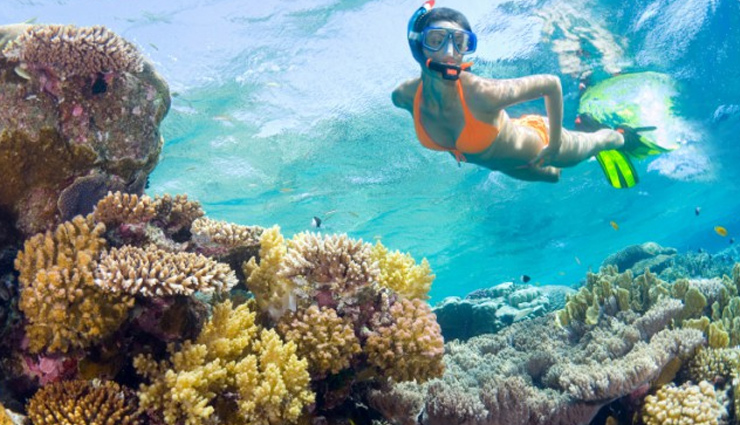Your Sunscreen Is Harming Marine Life In A Big Way
By: Priyanka Maheshwari Fri, 20 Apr 2018 11:51:57

Have you ever gone for a dip at a busy beach and noticed a shimmery, swirling glaze of run-off on the surface of the water?
That slick of oil on the waves is likely sunscreen, which has an active ingredient that can be toxic to ocean life. But despite 2015 findings that prove this, most travelers still seem unaware that protecting themselves from the sun is taking a toll on the world’s coral reefs. When stocking up on sunscreen for your upcoming summer beach trips, there’s more to think about than just SPF when it comes to responsibly choosing your go-to sunscreen.
Your sunscreen could be harming marine life in a big way. According to the Archives of Environmental Contamination and Toxicology, the main ingredient in sunscreens called oxybenzone is damaging coral reefs. The study credits “swimmers and municipal, residential, and boat/ship wastewater discharges” with putting oxybenzone in our oceans, and likens the harmful effects oxybenzone has on coral DNA to that of gasoline.
“[Oxybenzone] causes weird deformities in soft tissue and also causes the coral larvae to encase itself in its own skeleton, in its own coffin,” one of the study’s authors, Craig Downs, P.h.D., told the Guardian. The scientist also noted that dead coral, or “zombie reefs,” were much more common in Caribbean bays frequented by tourists, while less-touristy waters of the Caribbean still had healthy reefs.
“In one [bay] there’s just nothing there, it’s a desolate wasteland,” he said. “Two bays over, at a $1,000-a-night resort, where very few people go, there’s lots of coral recruitment, lots of spiny sea urchins.” Downs has also said, “about 90 percent of the reefs in the Caribbean have disappeared since 1980.”





-1732264080-lb.jpg)